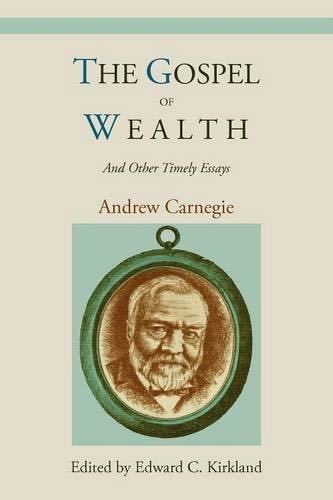Does America Hate England?
by Andrew Carnegie
Reviewed date: 2008 Jan 10
Reviewed date: 2008 Jan 10
This question has been much discussed of late in Britain: and the answer has generally been given in the affirmative; even the Spectator, a powerful and true friend of the Republic, has been reluctantly driven to that side. But the correct answer to this inquiry depends upon what is meant by hatred; for this may be of two kinds - one deep, permanent, generally racial, which creates hereditary antipathy and renders the parties natural enemies; the other only temporary and skin-deep - indignation and resentment aroused by specific questions, which pass with their settlement, leaving no serious estrangement behind.
Carnegie explains that the attitude of America toward England in 1897 was based on some specific incidents, but did not reflect any underlying hatred. In fact, America and England have much in common and are natural friends, the Revolutionary War and the War of 1812 notwithstanding.
The specific incidents that aroused American anger were:
- A flood of English manufactured goods into the American market
- The British repudiation of a seal-hunting treaty
- Briish refusal to submit the Venezuala border dispute to arbitration, despite an earlier promise to do so
Carnegie assured the British that Americans do not hate them, but in fact consider Britain their closest ally and friend.
More men in the United Kingdom than in the United States would hesitate to compliment and praise her Majesty and sing "God Save the Queen" with enthusiasm. She is universally recognized there as the truest of the true friends of the Republic, for she stood a friend when a friend was needed.
